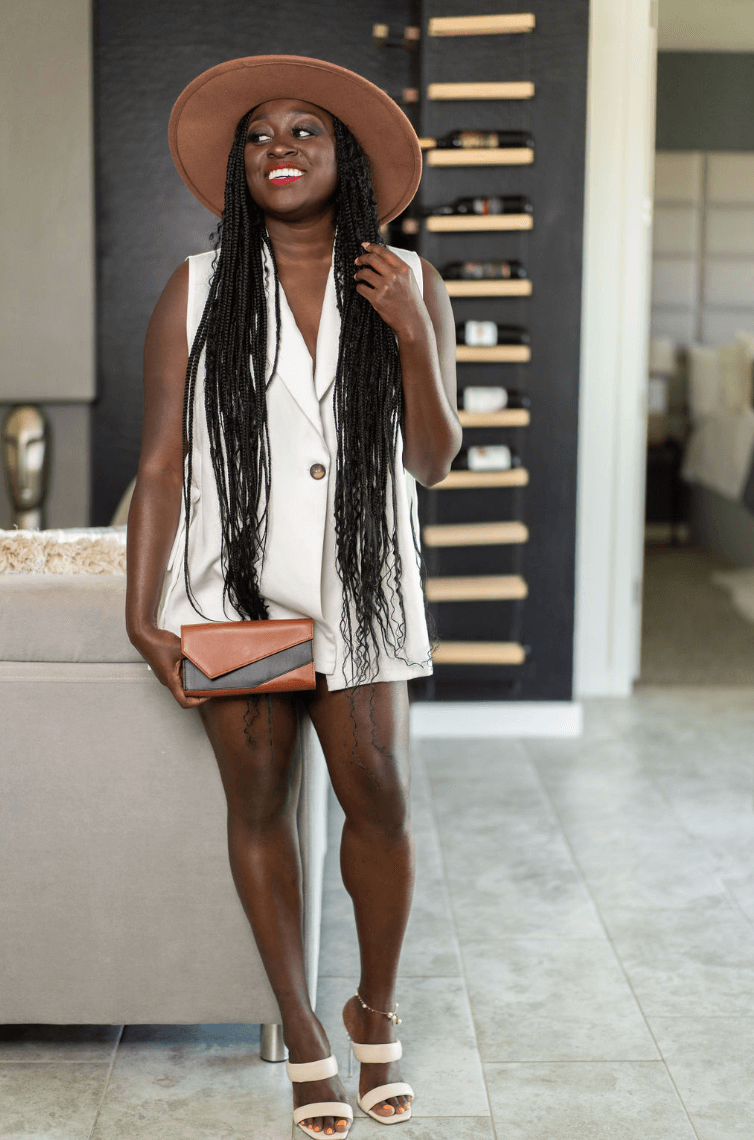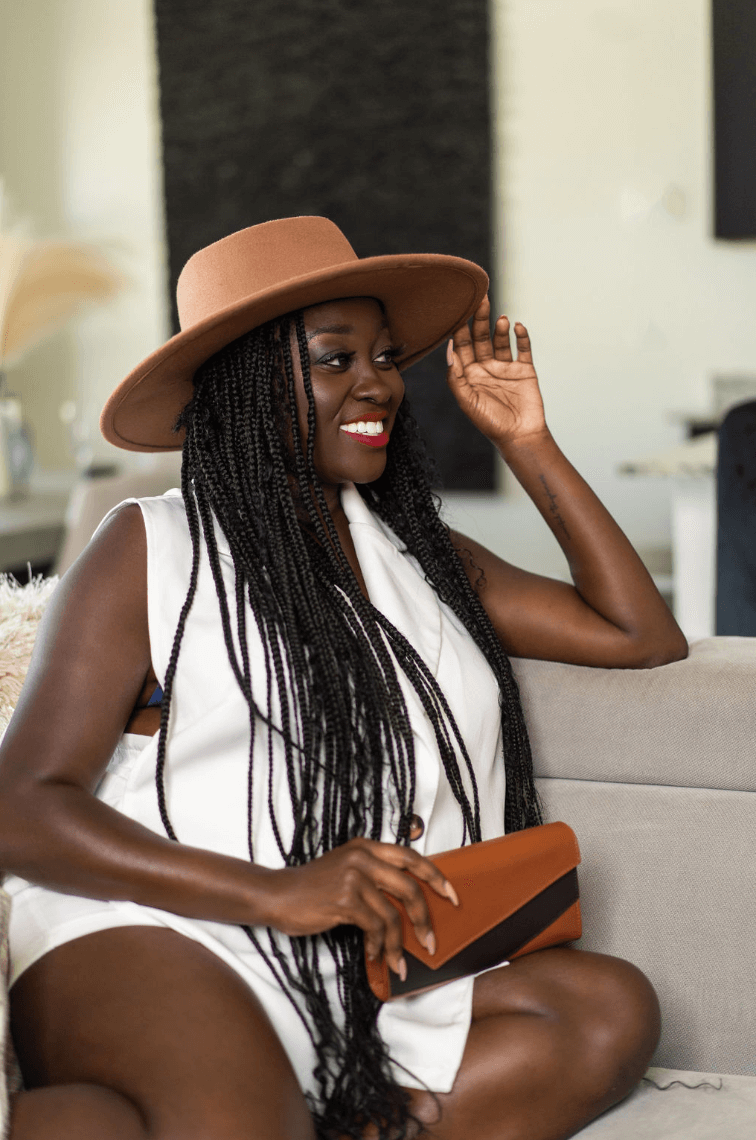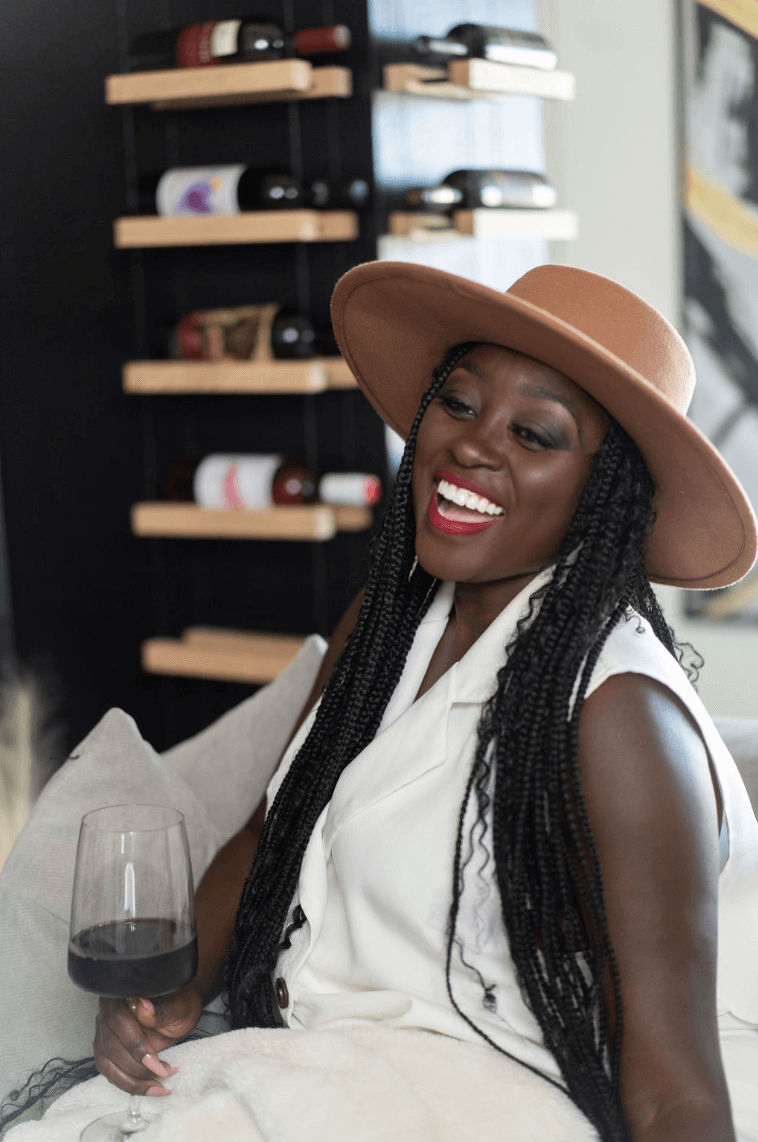10 | Sasha Simmons: How Facing My Biggest Fear Gave Me a New Level of Power
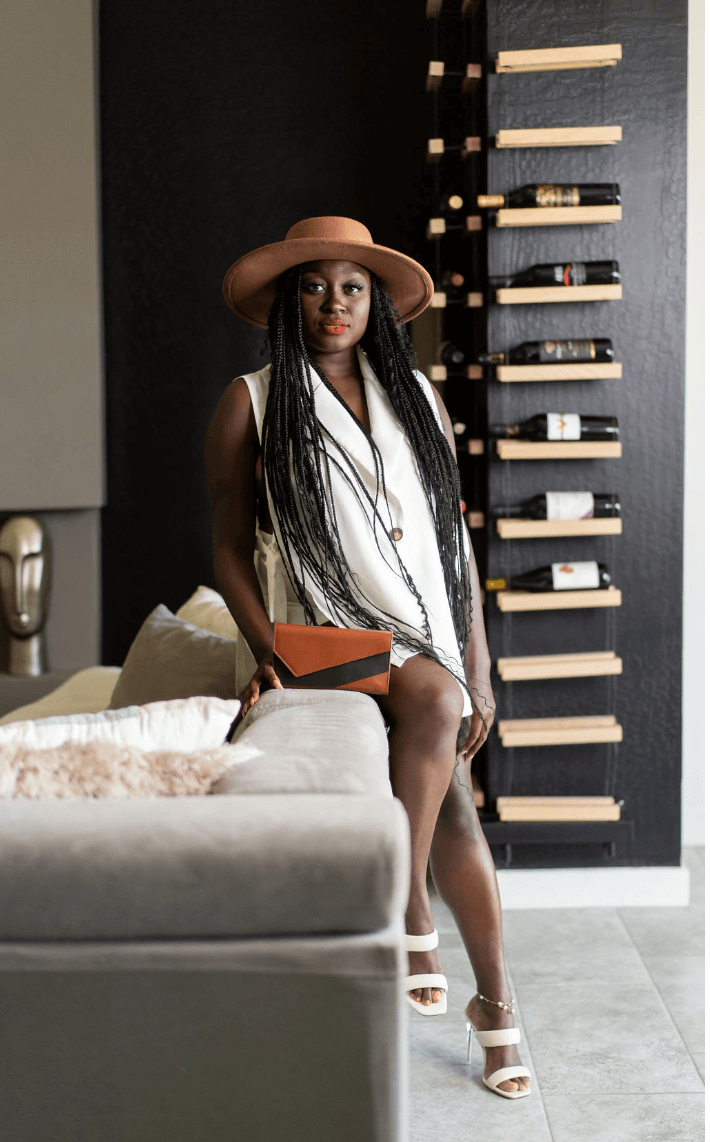
10 | Sasha Simmons: How Facing My Biggest Fear Gave Me a New Level of Power
Taking the biggest leap of faith, Sasha Simmons shares the battles and the fears she faced when deciding to no longer associate herself with everything she knew and everything that defined her as a person growing up. She stepped away from her religious cult.
Today, Sasha is a professional speaker and empowerment activist helping people navigate life to the absolute fullness.
Topics Covered:
- Being raised in a very strict religious cult
- The eye opening move to New York from Jacksonville, FL
- The journey with Semester at Sea
- Being strategic and intentional to reach your North Star
- Living my life for Me and deciding to leave my religion
- How I learned so much about myself with Vipassana 10 day meditation
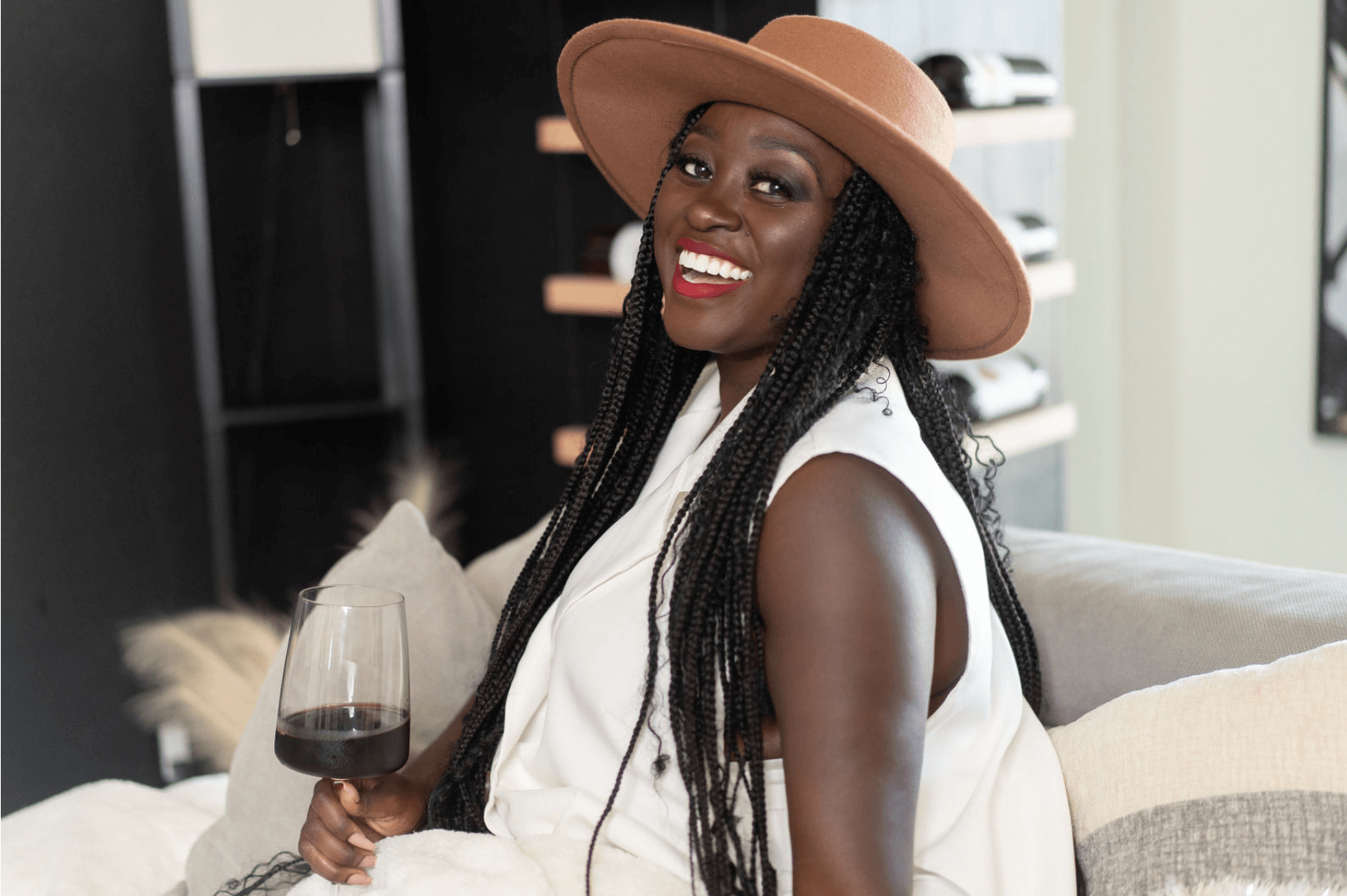
- Being raised in a very strict religious cult
- The eye opening move to New York from Jacksonville, FL
- The journey with Semester at Sea
- Being strategic and intentional to reach your North Star
- Living my life for Me and deciding to leave my religion
- How I learned so much about myself with Vipassana 10 day meditation
Explore Our Podcast
Transcript
Sasha Simmons: But it is just doing, doing your biggest fear, like what happened if it worked out? What happened if you are the mogul of this great company and you were so afraid to start it and you want it to stay in this bubble or this box that society have put you in? Or worse a box that you've put yourself in
Stephanie: I am Stephanie Evans and this is Diaries of a Modern Trailblazer. Take note of the journey and be inspired to forge your own amazing path.
It's always so great to talk to you. And I'm just honestly honored to have you speak. Um, so just to get started, just tell us more about who Miss Sasha Simmons is.
Sasha Simmons: Yes. First of all, Stephanie, thank you so much for creating this platform and being the dynamic trailblazer that you are. I have admired you for so long since we initially met and just really happy to be on this podcast with you.
Sasha, who am I? All right. I am a professional speaker. I am an empowerment activist. I really, truly, really believe in helping individuals navigate the life that they are able to experience on this earth and live it to its absolute fullness right to experience the fullness of life.
So many times there are so many things really inhibiting us from being able to live fully and live freely things that we've learned things that we believe the self talk that's going on in our head and so I know what that feels like because I live that way for so long. And being able to step outside of that and recognizing your power and realizing who you are is what I'm truly passionate about.
So tied up in that is motivational speaking. It's professional development series to, you know, help leaders and train them as well, giving them tools that's going to allow them to tap into their toolbox and pull it out whenever necessary. So that's what I do day to day professionally. That's what I, that's what I love.
That's what I live by.
Stephanie: Amazing. So just give us the backdrop of how you got there.
Sasha Simmons: Yeah. All right. So, once upon a time, I was raised in a cult. Think a cult like religion, uh, very strict. Particularly to women. And the thing about it is like the name of it is so this cult right is a religious cult, and it's based in Christianity and it's like apostolic Christianity.
And when I say that I want to qualify that statement, because there are some people who may have familiarity with it, but what we have to understand is that, apostolic religions, they're on a spectrum, so there's a more loose end of the spectrum, and then there's a really strict end of the spectrum. And the version that I grew up in is incredibly strict to women, like, I mean, oppressive, you could not speak, you had to, like, speak when spoken to. I had to be covered from head to toe.
Growing up, you couldn't play sports. You couldn't go to prom. You can't wear jewelry. You can't wear the colors pink or red or yellow. You can't have on open toe shoes. You can't have on backless shoes. You can't have your neck too low. Your dress has to be right above your ankle. Like you can only wear blue or black shoes. Like there are just a lot of rules around it that was incredibly controlling.
But beyond it controlling the dress, right? The thing that was really, I think most damaging is the mind control that it had over me and that it had over all its members. You think that you are stuck and this is all that you can do and you are absolutely living in fear because these are the things that you were taught.
Like Stephanie, I literally remember thinking that I would go blind for watching TV because I was raised and taught from as far back as I can remember— if you watch tv, if you watch a movie, Sasha, God will take your eyesight and go and you will go blind and you may die.
Stephanie: Oh my gosh.
Sasha Simmons: Like, it, it it's extreme
Stephanie: Yeah.
Sasha Simmons: And this was, this was my norm. This was what I thought and knew to be true. And, um, it's, it's how I lived and, and existed for so long. And then I got an opportunity to. Go to college, which is really interesting because my generation, our generation was the first in the religion that was allowed to go to college. Before us, they weren't allowed to go to college. And so...
Stephanie: Let me just take a step back. How was your education? Like your primary education? Was it within that cult?
Sasha Simmons: Yeah, that's a good question. There, my primary education was actually not within the cult. We did not have a school. So we were, I was in public school, but there were things like, so, you know, in America, we have, um, freedom of religion, right? You have that level of protection.
So one of the things we weren't allowed to do was get any vaccinations. And so going to school, I didn't have any vaccinations. But growing up, you're able to get something called a religious waiver that allows you to still go to school with the rest of the students.
So I was in school with the rest of the students, and that was really hard because, here's this girl. Everybody looked at me like, like, who's this girl? She looks crazy. She's dressing funny. Yeah. And I just, I didn't fit in with anybody at my school. I had a couple of friends here and there, but. Because we were, you know, assimilating in some ways, and then not assimilating in other ways, it just made it really difficult for me to figure out who I was my place in the world.
But the other thing, Stephanie is that it gave me also a level of power that I would not know until later on, as I as I continue to grow as a young person.
Stephanie: That's really interesting. So let's, let's step into the college experience for you.
Sasha Simmons: Yes, so then fast forward from, you know, primary education going into secondary education. I knew I wanted to go to college. Really wanted to figure out how to make this happen. I did not have funding, but I knew that somebody had to pay for college somehow, so I started applying for scholarships my junior year and in high school. And I applied for as many as I could. I wrote so many essays. I will say one of the things we were allowed to do in the religion was read.
Right— read books. And I read the entire encyclopedia set from A to Z, my brother and I. Everything, literally from the geographical elements of the Appalachian Mountains to the properties of zinc, like literally, we learned about all of it.
Stephanie: Yeah, I mean, if you can watch TV.
Sasha Simmons: Because we could— yeah, yeah. So that was what we did instead.
And, as a result of that, I had a lot of knowledge and could carry on conversations that, your average 17 year old in the early 2000s probably couldn't carry didn't have. And so I utilized a lot of the things that I learned through reading and apply that to my essays that I was writing and in using to go to college.
And I was, I was awarded over a million dollars in scholarships. I'm not sure if you know that or not. Like I got a shit ton of scholarships.
Stephanie: Oh wow.
Sasha Simmons: I was balling in scholarships! It was great. And I convinced the, the pastor of my church to let me go to New York because we had a church location in New York. And I wanted to go to NYU, so I convinced him that if they let me go, I would go to church, like every, every single service and, you know, be this good girl in the city.
And they said yes. So I went to New York and girl, I lost my damn mind.
Stephanie: Yeah.
Sasha Simmons: Oh.
Stephanie: And tell us where you are coming from.
Sasha Simmons: Jacksonville, Florida. I was coming from Jacksonville, Florida. So it was a long way from home. Yeah. Long way from home.
Stephanie: And a totally different world.
Sasha Simmons: Oh, completely different. And you know, here's the thing when I got to New York. People were telling me so many things about New York, like, right. New York is New York. If you had an opportunity to go to New York, you know what it's like. Like, you have to be fast. You have to be on it. It's it's in your face. It's, you know— it's, it's a lot to deal with.
And I won't lie. Initially when I got up there, I felt myself kind of like taking, getting scared. Like, Oh my gosh!
Stephanie: Yeah, it's intimidating.
Sasha Simmons: And also Stephanie, I was missing so many tools because I was literally coming from this world where, I just didn't have a lot of the tools that my counterparts had. I would learn that later, but I just didn't have it. And so— it was a bit intimidating for me. And anytime I feel intimidated by something, my philosophy is to double down, to double down into it.
And girl, you better figure that shit out some way, somehow. So, um, I, everything while I was at NYU that scared me, that gave me pause, that made me go. If it made, if it gave me that feeling, then I forced myself to do it until I got that out of my system. So I would go up, talk to all, everybody, any person that I could meet, the president, whoever I felt intimidated by, I would force myself to do it so that I could get like out of being so, so, so, so terrified.
Yeah. Yeah. Yeah. But it's, you know, it taught me, it taught me so much and there's a long journey of like the first time I felt the wind on my legs. I was walking in New York and I had on a jean skirt that was like below my knee and I had never felt that feeling before I was like...
Stephanie: Right, because your dresses were like above the ankle.
Sasha Simmons: Yeah, above the ankle and I had on stockings underneath like these thick cotton stockings is what they're called. These brown stockings that sharecroppers wear actually— is what we wore. And so I had never felt that.
And so for me I had like these milestone moments like I was I remember I was in a calculus class. And I had started to experiment with pants at this point because you couldn't wear pants at all. And I remember sitting in my chair with my legs crossed in class. And I felt so fucking liberated. Like, I felt like I can take over the world. I am sitting here with my legs crossed. I've never been able to sit with my legs crossed like this in school because I always had on a straight skirt.
Learning calculus right at NYU at 19 years old, like the world is my oyster and I'm going to make something amazing and fantastic out of my life. Like that's what I was distinctively remember feeling like that in that calculus class. Now calculus is not my jam so I struggled.
I struggled in that class but you know that moment of liberation that I felt is something I'll never forget.
Stephanie: That's beautiful. You know, you mentioned the world being your oyster. And you know— we kind of had that experience. And that was how we met. We did Semester at Sea while we were both, um, continuing our undergraduate studies. So tell us a bit about that experience for you.
Sasha Simmons: Wow. So, let me, let me take you back to childhood and then bring it forward.
As a child, reading the encyclopedias, I would like, look at the Taj Mahal and look at the Great Wall of China and close my eyes and imagine myself standing in front of the Taj Mahal and climbing up the Great Wall of China. And then I would think, okay, this is probably— I don't know if this is going to happen. Like I'm this little girl in the hood that's all around the other side of the world. It may never happen.
And then I learned about Semester at Sea. I think maybe my sophomore or junior year. I think my sophomore year. And I remember distinctively being so excited, but also wanting somebody to go with me. And I was trying to convince my friend to go with me on this journey.
And I remember talking to my mentor at the time, my very first mentor. And I was like, you know, I really want to go, but I don't want to go by myself. I'm trying to get my friend to go with me, but she's scared. And my mentor told me something that has lived with me and stuck with me for years. And that is— you can't be afraid to do it alone. The people who are meant to be in your life, you will meet on the journey.
Stephanie: Yeah.
Sasha Simmons: I literally just got chills saying that to you. Can we just pause for that? You can't be afraid to do it alone. The people that you will, I don't even remember what I just said, but you will meet like your people on the journey. Like you, you have to go because you'll meet your people. And, um, he's so right, Steph.
Because we met so many dynamic and amazing people. I mean, that was years ago and you and I are still friends. That was 2000, 2008. We left, we left America before Obama became president.
Stephanie: Right. That was amazing. And to be in Africa when that was happening too.
Sasha Simmons: It was, it was so beautiful and just something that I remember, and I tell people all the time, I mean, we circumnavigated a globe, right? We lived the same day twice. November, I think it was November, November 27. We had to November 27.
Um,
Stephanie: I don't remember what day that was. Okay.
Sasha Simmons: I don't remember the day. It was November.
Stephanie: November 27 was my birthday in Hawaii, eating KFC on the beach. Okay.
My 21st birthday.
Sasha Simmons: That was your 21st birthday?
Stephanie: Yeah.
Sasha Simmons: Wow. Okay. All right. Well, then it must have been after that, right? When we passed Before that when we passed the international Dateline. I can't remember.
Stephanie: I don't remember when we did that, but, we definitely did.
Sasha Simmons: We, we definitely did it. I was like, it is the same day again, . Um, so like, just, I learned so much on that, that journey and I did it scared. And that's the thing, right? One of the things about building the life you want for yourself is that you have to do it scared. Nobody have all of the answers to anything today. That's not how it works, right?
This was a lesson I had to learn. I was terrified in undergrad of failing. Literally, I was like, I never want to fail. Like what happens? And then I recognized that failure and success, it's like peanut butter and jelly. Like it just goes together. You can't, you're not going to have one without the other. And so you have to be comfortable in that fail fast, learn from your lessons, you know, course correct. And then, you know, hopefully have a better outcome the next time.
But I learned so much on that journey and I learned the power of humanity and what it looks like right across the world, all these different people practicing different religions, all these different cultures, still being able to love and to give and like, there was just so humility that so much humility that I took from that journey and ultimately I recognize that everybody in the world want three things. They want to feel safe, valued, and respected. I don't care who you are, where you're from. Everybody wants to feel those things.
Stephanie: Yep. Absolutely. What would you say was personally your biggest learning in that experience?
Sasha Simmons: I think I truly learned the gift of what it meant to be born in America, honestly. And I know that our country have a lot of problems and a lot of challenges. God knows.
I know that there's so much work and so much improvement that we can make, but truly being being born an American citizen gives you access in a way that a lot of people around the world simply do not have. Just that level— that alone. And I learned that at 20 years old, right?
Stephanie: Mm-hmm.
Sasha Simmons: When we were, when we were able to take this journey of discovery and, and it was an opportunity for me to really value that. Really value what it means to have clean water, right? What it really, really means to have clean food. To be safe, and uh, and it's just, For me, it put things in perspective because it's easy to take things for granted.
And to this day, anytime I start feeling like, Oh, what was me? Life is lifing. I'll pull out my old pink DVD player. Cause yes, I have a pink DVD player from college. I will play and watch my Semester at Sea video. And it reminds me of, of life. It reminds me to be grateful of all the gifts and all the beautiful things that we have.
So I think for me, my biggest learning was, man, to just be, to be born in this, in America, to have that is really a gift and it's something that we should absolutely leverage and just be appreciative of.
Stephanie: I absolutely agree with you on that. We do take a lot of things for granted here. A lot of things that we have access to that so many people around the world do not. You know, like just being able to turn on the faucet and having clean water and not having to walk miles to get a gallon that you have to carry back home.
Sasha Simmons: And use for the week.
Stephanie: Yes. Um, and that, like having that experience really made me realize that I am a world citizen, and I need to do my part to make this world a better place, which is one of the reasons why I work with the organization, the Kujuwa Initiative, which supplies girls with reusable upcycled sanitary napkins for them to continue their education undisrupted because it's, it's not accessible for them, when that time of the month comes, you know, and that's just so it's just second nature here in this country to have access to those types of things.
Um, so yeah, that's,
Sasha Simmons: That's a beautiful cause and a worthy mission. Yeah. It's humbling. It's humbling when you learn the way that that people have to live in the world. Right. So kudos to you for, for being willing to put that level of work in so that girls, you know, across the world have access to something so important.
Stephanie: I appreciate it.
You talk about living life without limits, and it was really interesting to hear about your upbringing and what it is you're doing now. What does it mean to live life without limits?
Sasha Simmons: Stephanie with the big questions. For me, living without limits is doing all the things that scare you. All the things that make you second guess— am I taking the right thing? Maybe I shouldn't do this because fear is crippling, right? Like you can be so afraid of something that you just freeze. And the next thing you know, 30 years have rolled by and you still have that, that genius idea rolling in the back of your head. Or you watch somebody else live out your dream because the dream had to be fulfilled and it went to someone else.
For me, living life without limits truly is— Oh man, I want to learn how to fly an airplane, but I'm terrified to be a pilot. Let me sign up in 2023 to learn how to fly an airplane.
Stephanie: Are you doing that?
Sasha Simmons: No.
Stephanie: I wouldn't be surprised.
Sasha Simmons: It's, it's a no, not yet, but maybe. Maybe I don't, I don't have a deep desire for it yet, but, um, but it may, it may come in the future.
We'll, we'll see.
Stephanie: Gotcha.
Sasha Simmons: But it is just doing, doing your biggest fear, like what happened if it worked out? What happened if you are the mogul of this great company and you were so afraid to start it and you want it to stay in this bubble or this box that society have put you in? Or worse a box that you've put yourself in right as a response to societal norms and things you've been told. So you know if whatever your fear is write it on the write it on the board write it on your board somewhere As long as it's safe, I'm not saying go out here and be reckless, put that qualifying statement in because I don't want nobody blaming me later on.
As long as it's safe, write it on the board and figure out what the steps are to get it done and go do it.
Stephanie: So I get that part. And it's, it's a lot easier said than done. I mean, it's easy to write it down. But how do we actually push that boundary and take that leap of faith?
Sasha Simmons: Yeah, so for me, I have accountability partners that I'll tell things to I want to do this. I have to do this and we hold ourselves accountable.
In fact, what I'm about to do soon here in Phoenix with some of my closest girlfriends is quarterly. We're going to have a quarterly tune up and we're coming to my house. We're going to have brunch because, you know, you got to have a brunch. You got to have a little mimosa.
Stephanie: I love that.
Sasha Simmons: We're going to set fitness personal and career goals.
Thank you. And, um, what do you want to accomplish in Q4? What are you afraid of that you want to accomplish in Q4? And dammit, you have to accomplish it. We're going to be checking in on each other. We're going to be asking questions. And if we have connects that will help you get to where it is, we're gonna help you do that as well.
But for me, having people that you know, you can count on doing the research around how do I get this done? Because sometimes maybe you just don't know how to make this happen, right? That's a real thing. There's chat GPT out there that will give you some solutions. There's Google, there's YouTube University, all of these things out there that you can do the research. You have to take the action, right?
So writing it on the board or writing it around wherever you want is step one. But after that, you got to go 123. How do I take this action? Where do I want to be in six months? Okay. Well, if I want to be there in six months, then what steps do I need to do to be there in five months, four months and back yourself up into what your plan is and execute. Execute like hell. You have to execute like hell.
Tired. It don't matter. You, do you want this goal or do you want to sleep? So that's what it comes down to.
Stephanie: Yeah. Accountability and action is key.
Sasha Simmons: Yeah.
Stephanie: For sure.
Sasha Simmons: And you have to know like what you respond to as a person, right? Like, what is it that feed your soul? Because we all get down, we all don't feel like doing things at time.
That's, that's a human response. And I don't want to make it seem like it's not. So you have to figure out what gives you energy. For some people it's going out to get sunshine. It's going for a walk. It's going to work out. It's listening to something inspirational or motivational. It's talking to somebody.
It's something like that. Figure out what your trigger is that's going to help kickstart you to take some action. You have to figure out what that is for you.
Stephanie: And it doesn't necessarily have to be one thing. It can be multiple things depending on what mood you're in or what environment you're currently in or challenges you're facing at that time.
Sasha Simmons: Right. You're right. And it may change from time to time. You're so right.
Stephanie: Exactly. Different seasons call for different measures.
Sasha Simmons: Correct.
Stephanie: Strategy and intentionality. Why is that so important to you?
Sasha Simmons: It's, it's really important strategy and intentionality is important because kind of like what we're, what we were just talking about, right?
I had a mentor who told me, Sasha, you're super talented, but if you don't have strategy and if you don't have intentional, if you're, excuse me, if you don't have intention and you're not intentional about what it is that you want, you will literally be a talented person just standing still or. Or just on like the little hamster wheel. That's it.
You have to use strategy and you have to be intentional. And what I'm finding is that, especially, and I don't know who your audience is, Stephanie, but especially once you get to a certain level in your, in your life, everybody's firing at a high level. Everybody's performing. It ain't no, it ain't nobody just sitting there twiddling their thumbs, doing nothing, right?
Like, you know, in high school, there's like the top 10 and you really separated from the group. In college, that group gets a little smaller. Once you get to these rooms where you are performing high, you have all high performers, all high achievers, the only difference is strategy. That's that's what determined who's going to outmaneuver who who's going to work what and and what the solution is going to be.
And so what you really have to do is make a decision as to what it is that you want. And figuring out what it is that you want can be challenging and it can take time, because what is your North Star? Once you've clearly defined your North Star, you have to take time, you have to ask a lot of questions.
Why is this my North Star? Does it And
then, just to pause on that, what is the North Star? Can you define that?
So your North star is the thing that you want more than anything. This is the thing I'm working toward. This is the thing I want to happen in my life. For example, your North star could be, I want to build a world Renown luxury brand of purses, right?
Or, or whatever your, like your North star is. So everything that you do, everything that you build, all the connections you make. Need to be something that's going when you're using strategy need to be something that's going to help get you to that North Star some type of way. What happens a lot of time is that we're just living right?
It's like those little inflatable things that you see by the car lot. Just like The wind going every different direction. Right. It does what it's doing what it's supposed to do. Getting your attention and making you look right. Yeah. It's not being intentional and it's movement. And so when my mentor said that to me, I was like, yo, he's absolutely.
Correct. Because you're, you are a high achiever, right? Steph, you have always been a high achiever. You're at that level. The people that are in the rooms with you are also at that level. And if you don't have a solid strategy and if you're not intentional in what that looks like, then you won't be able to fire, you won't be able to go to the next step.
So here, here's some steps people can do. One, make a list of 100 people who know, like, and respect you. That you know also have access to things right things can be funding, things can be connection, things can be just resources and knowledge right like people that you also respect, who can help navigate you and put on this.
Our mind is on a Google sheet doc, everything you know about them, the email address, their affiliations, their political parties, because it really don't matter what it is. You can leverage whatever, but you want to at least know, um, all the things that, you know, may define that person so that you can understand who they are and how you can leverage their, their help and their support.
People want to help. Yeah, people want to help. We just have to have the strategy and have the vulnerability to actually integrate it. Ask and know where we want to go.
Stephanie: And another thing that I would add about being intentional is when you are intentional, you know when to say no to things because you're focused.
And there are so many distractions out there, there's events that are out there that are great, but may not present the right opportunities for you that, you know, you know, it's like you juggling multiple things at once. How do I eliminate these things so I can continue to stay focused and move towards my North Star?
And sometimes it requires saying no. And so that's one thing that you have to learn and be purposeful about as well.
Sasha Simmons: Correct. You're right. And that's what allows alignment, right? Does this align? And you can never achieve those things if you aren't being intentional. Period. Quite impossible in my opinion.
Yeah.
Stephanie: And eliminating the FOMO, the fear of missing out. Like you're not missing out. You're not missing. You're just focused.
Sasha Simmons: You're not missing out bro. At all. Because there's going to be another gala. There's going to be another party. There's going to be another brunch. It's going to happen again.
Stephanie: Exactly.
Sasha Simmons: And hopefully you're in a different place or everybody's coming to your gala because now you're doing the, you know what I mean? You're on the receiving end of it. So you just really have to think about what you want. Prioritize that and go for it.
Stephanie: And I love what you said about having that North Star.
We talk a lot about that at my current workplace, but I never really thought about it in my personal pursuits, but yes, I do have that North Star of building an iconic heritage brand with Pamoja. So, yeah.
Sasha Simmons: I love that. And you're doing all the right things to be strategic in building that.
And so I applaud you for that, because a lot of times we don't do that, whether it's out of fear or just a lack of knowing. It's easy to be distracted. It is easier to, way easier to be distracted than focused in this world. It's just hard. And I get it. Listen, nobody loves a turn up or a brunch more than me.
Period. I'm down, right? I want to be on a boat right now.
So, so yeah, that's what it is.
Stephanie: I agree.
Sasha Simmons: Yeah.
Stephanie: Pivoting, what motto do you live by Sasha?
Sasha Simmons: The motto is, well, I kind of have two and maybe it's like, maybe I'm in a space of morphing things, right? Because this is what life is growing and learning.
So the first is, I never know how things are going to work out until they work out and they always work out.
That is what I say to myself when shit is hitting the fan, because...
Stephanie: Can you say that again?
Sasha Simmons: I never know how things are going to work out until they work out and they always work out.
I literally will say it in the mirror — I never know how things are going to work out until they work out and they always, always, always work out because you have to have something that's going to ground yourself when you're in the mix of it all, and everybody's counting on you. And sometimes the bottom fall out of things, right? Like that's, that is a real thing that we have to talk about and a real expectation that we need to set and how are you going to dust yourself off and get back up and keep climbing and keep grinding, right?
So, that's a real thing for me. It really does help me to not lose myself when I'm working on something or when I'm trying to accomplish something.
The other motto is one that I learned actually from one of my first employers, my internship, and that was that anyone can achieve anything. It's a matter of how bad they want it. And gosh, anyone with like a functioning brain, right, can accomplish.
Stephanie: Yeah.
Sasha Simmons: It's a matter of how bad they want it. Cause if so you'll do the work, you'll, you'll make yourself vulnerable. You'll ask the questions.
You're going to get your feelings hurt. You're going to be rejected and you're going to go back again.
You know, all those things are a part of the process and a part of growing.
Stephanie: It is so true. And it's just like, what self limitations are you creating for yourself that you need to overcome?
Sasha Simmons: Yeah. I had all of those things, man, and, and, you know, the thing is that I want listeners to understand, and I have to tell myself as well, is that it's not an, for me at least, it's never an, I've arrived, right?
Like those, those thoughts still creep in. You have to battle that shit daily, like those, that self doubt still try to, to rear its ugly head.
Stephanie: Yes.
Sasha Simmons: You know, am I worthy of this? And are people going to believe me? Am I smart? And all these things, they really still show up. And so we have to do daily work to, to like keep it down.
Keep it down. And I talk to myself in the mirror a lot. I'm comfortable with it. I encourage everybody to do it. Talk to yourself. Like when you finish listening to this. Go talk to yourself in the mirror. You can say, girl, you bad. Girl, you fly. Whatever you need that's going to help get you through, say it to yourself in the mirror.
Stephanie: I woke up this morning and I was like, it's going to be a great day. And I got dressed up, my hair out. I'm like, I look fabulous. And it is a fabulous day.
You know. All the time. That's the goal. It's not easy, but these are like the affirmations that you have to put out there for yourself.
And, you know, it's like, we talked about fear earlier. And behind fear is that deep desire to become who we truly want to be. What is the hardest decision that you've made for yourself, Sasha?
Sasha Simmons: By far, by far, leaving my religion because it was everything, right? By far.
And it wasn't just a— Oh, I don't want to do that anymore. Like, I don't want to play flute. Like I was, this was ingrained in me. Everything that I knew, they were my family. Because we didn't talk to our family outside of the religion, like not really. You had to separate yourself.
So leaving was, I was faced with losing everything I knew and loved. And I did for, for some time. And I was very young navigating this world of not being able to talk to parents, not being able to talk to the people that I had grown, grew up with in my religion and the folks who were like my aunts and my uncles and cousins, not being able to have a relationship with them.
And also thinking that I was going to go to hell at the same time, like all of these thoughts. Every day, I thought I was going to go to hell or, or I was going to die in a fiery car crash. Right. And so for me, the fact that I faced that head on and told the pastor, the, the head bishop of the church, like, I'm not afraid to die and like, I'm not, I'm not going to stay here.
There's nothing else. Like, I literally looked death or hell in its faith and it was like, I'm good, so bring whatever your life has to offer, but that was the hardest decision because I had to unlearn everything and build completely in total. And I mean, I am just getting to the point where I'm good and by that I mean like in the last two to three years.
So when I meet people, they're like, oh my gosh, but you've been living in Phoenix for like eight years and I've known you for so long. And I'm like, yeah, but I was still battling it mentally in my mind and my spirit. Like there were so many things, you know, I thought I still believe like.
For example, one of the things is that you can't marry somebody outside of the church. If you do, you automatically go to hell, period. There's no forgiveness. That's it. And believe it or not, when I think back to my dating life, like I'm 36 now, and I realized that that was, that was a huge part of like me not dating well, or not being able to like find my person because I believe...
Stephanie: battling with that belief.
Sasha Simmons: Correct. So, um, so yeah, by far that was the hardest thing for me to do in my life.
Stephanie: And when did you make that decision?
Sasha Simmons: What decision? To leave?
Stephanie: To leave, yeah.
Sasha Simmons: It was a journey. It wasn't like a light switch. So it started, it started with questions like, Why this? And I don't understand that. And um, then just being shamed by everybody in the church.
So it, it, the trend, it was a transition that took several years for me to like, come out and be like, I don't want to do this. And that transition probably was like four years.
Yeah.
And then it was just me battling with everything in my mind. Like, Oh, am I really going to die? You know, dealing with this? Is this, is this why this is happening to me? Is God punishing me? And, you know, and they would tell me, Oh, God's going to, God's whipping you. And this, these are this thing.
But now I go back to visit sometimes. And they're like, they see that my life is this beautiful thing by God's grace and also good decision making.
Let's, let's be very clear. Life is a result of decisions that we make. And suddenly the story has changed. Oh, God is blessing you so much because we prayed for you. Nah, nah, nah, nah. That ain't what y'all was telling me when I was in my early twenties. Like the story has completely changed. Y'all was telling me I was going to have damnation, but y'all see, you know, it's the opposite of what damnation looks like. And now it's, "Oh, we just love you so much. And God has blessed you because we've been praying for you." So it's just like, you know, okay. Say whatever you want to say.
Stephanie: Yeah. Yeah. Yeah. Having the courage to make the right moves for you. Sometimes that can be daunting and really, really tough. And so I'm really proud of you for doing that for yourself.
Sasha Simmons: Thank you so much. It was, it was hard, you know, and it was a strain on my relationship with my Mom. Thank God. It took a while to get there and she had to understand that I have to live my life for me. And also I'm not out here doing like, I don't know what type of life they thought I was doing, but like I was hanging out with you on Semester at Sea. You know, like I wasn't, I didn't, I wasn't out here living a shabby life.
I was learning and experiencing culture and new things and having...
Stephanie: Growing and evolving into the amazing Sasha that you are.
Sasha Simmons: Yes. Thank you, Stephanie. So, yeah. It's been a blessing and it's been a journey and it's been a beautiful, beautiful journey. I am so grateful. I mean, when I think about the people in my circle, I am like, damn, like, everybody's amazing.
Like I have some great people in my circle and I'm just, I continue to be humbled by it and I continue to just meet more amazing people. And I love that. I love hearing people's stories and just rooting for them and celebrating them and their greatness as well.
Stephanie: And you know, we met when we were in our early twenties.
Yeah. This was probably the initial Journey of you discovering yourself as an individual and really doing Semester at Sea and I didn't really know and understand those challenges that you were facing internally and dealing with until years later down the line. So, I appreciate you coming on this podcast and sharing that part of you with us.
Sasha Simmons: Thank you, Stephanie. Thank you.
Stephanie: For sure. So I do want to read this, um, this post that I came across recently because I did think about you, um, and just wanted to get your thoughts on it because I feel like it really resonates to the conversation that we've been having. And this is from a guy named Garen Jones, who recently had a TED talk, and it's titled "How to Use Artist Power to Discover Your Authentic Self."
Age doesn't determine our oldness. I look and feel younger today at the age of 44 than I did at 34. It's how we live our lives that truly matters. The hot air balloon cannot leave the ground unless you release the weight.
Sasha Simmons: Wow, that is,
Stephanie: I still got more to read.
Sasha Simmons: Oh, there's more?
Stephanie: But that part right there.
Take a moment to reflect on if you are living a lie or as your truest expression. Think about your current way of living— your relationships, job, health, and family— your inner integrity. Can you confidently say that you won't have regrets when you look back 50, 60, or 70 years from now? In today's fast paced world of calculated distractions, anxiety, depression, masking, overcompensating, and trying to fit in are on the rise because we often forget one crucial aspect— to actually experience what it's like to truly live. We forget to prioritize our well being, to pursue careers that bring fulfillment, to nurture relationships that align with our deepest desires, and to create a lifestyle that allows us to experience joy and adventure even in our golden years. Today, I invite you to embrace life a little more, smile a little wider, and savor the precious moments that often go unnoticed.
Start living with intention, but rather consciously make choices aligned with the desires of your heart and soul. One decision at a time, creating a life that is authentically yours. You'll discover that age is just a number for your soul remains forever young.
Sasha Simmons: That was more beautiful than anything I could have ever said.
Wow. And so much like that was so much was said as you were reading that. It made me think about what I do to ground myself, which is meditation. Right before we hopped on, we talked about that briefly. And I think it's so powerful to, to be able to meditate, meditate because it silence the distractions, it silence the noise. And as he said, it's easy to be distracted in this world. There's a lot of, I think he said, calculated distractions. There's a lot of that happening. So what I would love to offer to folks listening is, taking advantage of something called Vipassana, V-I-P-A-S-S-A-N-A.
Vipassana is a 10 day meditation camp, and that may seem a bit, um, aggressive, but it is a 10 day meditation camp. It is no cost to you, your initial time doing it. There are several locations across the United States and across the world, really, where you can go and you can do that. I did it for my 30th birthday, Stephanie.
Stephanie: I think I remember you were telling me about this when you did it.
Sasha Simmons: All the things he said just now in that passage that you read, were things that I experienced and I felt going through that. Right. Because it's really easy to look externally as other things that are happening to you. Right. And yeah, the moving world. But that that 10 day meditation camp Vipassana where you're in silence.
You're not, you do not speak for 10 days. You're in silence.
Stephanie: And for you. Yeah, I remember you told me I was like, Sasha doing that? I don't know.
Sasha Simmons: I needed it because sometimes you just need to sit down and be quiet. Yeah. And listen, listen to your soul. What is your soul saying? Right? What is your soul? And you'll learn so much about yourself.
You'll learn how to forgive. You'll uncover things that maybe you were holding on to, things that were causing you pain that you hadn't even necessarily realized it because you've suppressed it. You know, you've been dealing with anxiety or depression, all these things he's talked to. So for me, All that to say meditation is my tool and anytime I talk to someone we go on this conversation and I the the space and opportunity come for me to share Vipassana with them, I always share it and i'm like if you have time if you have 10 days take the time and sit with yourself and learn yourself because it is absolutely Life changing. There's no one in this world. You should know better than yourself. And so that was beautiful.
Stephanie: Yeah, absolutely. I'm going to look that up.
Sasha Simmons: Yeah, there. Yeah. I don't know where the closest one is to you, but yeah, I went to the one that was like right outside of California. And I think it was in Cali actually, and it was for I was a four hour drive from Phoenix. I gave them my cell phone, gave them my keys. Let my, my mom knew what was going on. They wouldn't hear from me for the next 10 days, but I'm not missing. And it was, it was beautiful. I literally looked it up last week because I want to do another 10 day, but I want to serve this time. Like I want to be able to like help prepare the food and give to people.
Stephanie: Yeah. That sounds like an amazing experience
Sasha Simmons: It was very, very refreshing.
So, so yeah, thank you for reading that and sharing.
Stephanie: Yeah, no, I, I read it. I was like, I feel like I should share this with Sasha because I just felt like our conversation was going to go somewhere around that. And, you know, it's also just great to share that with the audience as well.
Anyways, we are. entrepreneurial at heart, period. And I know that you have recently done some additional things. Like working on your AF series, and I wanted to make sure that we touch on that because I do love the work that you're putting out with that, so tell us more.
Sasha Simmons: Thank you so much. So I have been wanting to create, create word art and quote, or I call it quote art for a while.
And I don't know if, if this is a thing or if I made it up, but quote art. When you go into home goods or at home and you see like beautiful quotes on art that you can hang up in your home. And so I, there are things that, there are quotes that I say in my life and things that I use all the time. And the AF series or as fuck series is what it stands for, uh, is what I've recently released.
You can go to my website, SashaSimmons.Com and go to shop and you'll find it there. But there are beautiful quote art that's, you know, Dope As Fuck. Resilient As Fuck, Soft AF. It has AF on the, on the actual thing. Gifted AF, all these things, and whatever it is that describes you and who, and you know, really resonates with who you are, display that in your home and let the world know that you are dope AF, period, full stop. And that's that. So that's, that's where we are right now.
And I, I really love it. And it is underneath the umbrella of a Fuck Yo' Box, which is my brand. And it's the story that I tell of, of leaving, honestly, the religion and finding my wings and learning how to fly because I was absolutely living in a box, and now I don't allow people to put me in any box.
Fuck Yo' Box, all of them. I'm not, I'm not doing that at all. I'm not playing. And I think that we have to be more intentional about not being inside of the box because it's so limited in so many ways.
Stephanie: Absolutely. And I will certainly be sharing these links in the notes. So definitely tap in and check it out for sure. And I definitely need to as well, because I need to add to my home as I'm growing the art in this lovely space.
Sasha Simmons: Yes. And tap into to your network. Again, with my homegirl, I was trying to find somebody to to design this for me and I was talking to my homegirls I could design it and I was like, that's right. I know people who do this so again we're talking about list of 100 people you know somebody in your immediate circle, who can help you get where you want to be, period.
We just have to ask we have to have these conversations.
Stephanie: Like you, you don't have to go about it alone. And I'm just thinking about things that I want to do as I'm building out the brand and I'm looking into expanding into wholesale and building out collateral to support that. There are people in my network that I can certainly tap into to help me do this.
I don't need to seek external partners for that. And like, investing in other people when I can invest in people that I know who are working on building or even trying to learn a skill set or build out a skill set to create their own services for others. So most definitely. I agree with you on that.
And as we, you know, wrap up this conversation, I like to end it in hindsight, just talking about the younger version of yourself. What do you wish the younger version of yourself knew?
Sasha Simmons: You mean Young Sash?
Stephanie: Yes, Young Sash.
Sasha Simmons: Oh, I wish that Young Sasha knew how truly— knew and also believed how gifted she, she was. Because I had to convince myself for some time that I was talented and that I was gifted and I had to hear other people say it.
And I wish that. I just, I wish I just always knew it. I just wish that I always was able to move through the world with that level of confidence. And it's funny because when I say that to people, people always kind of taken aback, like, really, you didn't believe that always? And I'm like, no, like, absolutely not.
But I wish that I always knew and believe that. That you are brilliant and you have a message, an important message to share with the world. And you need to share it because it's, it's. It's almost like your art, right? You're creating something that's personal to you. And so you are sensitive about it. And so maybe sharing your greatness with the world can be, can be a bit intimidating because the world's not always a kind place, but it can be intimidating, but I just wish that young Sasha knew how, how brilliant and how talented she truly was.
Stephanie: Yes. And I'm glad that that version of Sasha is really shining right now.
Sasha Simmons: Thank you. Thank you. Thank you.
Stephanie: And so what's next for my great friend, Sasha?
Sasha Simmons: I had an amazing meeting with an amazing person yesterday that I can't talk about yet. Okay. That is on the horizon, but we need to like finalize some things first.
Stephanie: I love it.
Sasha Simmons: Guess what? She was on my list of a hundred people. She was literally on my list and, and I've just restarted the list. She was number three. So what I'm telling you is that you don't have to wait till you get down in the 70s to start making these change and for things to start happening. Like literally the person on my list and it's already, um, it's already wheels are rolling and we're going to have a, you know, a pretty important meeting here coming up in the next few weeks to really solidify things.
And, um, I'm just so grateful. I'm so grateful and excited.
Stephanie: That's really, really exciting. And I'm looking forward to hearing more about this.
Sasha Simmons: Yes. I can't wait to share once, once the ink's dry, then I can share.
Stephanie: Yes. Amazing. Well, thank you so much, Sasha, for coming on and chatting it up with me and sharing all of your great gems with us.
Sasha Simmons: Thank you for having me, Stephanie. It's always a pleasure. You know, you are my girl, so I'm always here and available to support you and to champion you, celebrate you any way I can.
Stephanie: Thank you.
And that's a wrap. So own it and make moves. One day, I want to share your journey on this podcast.





